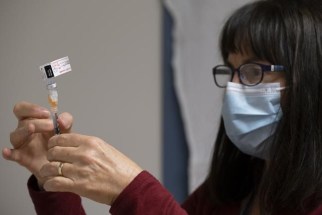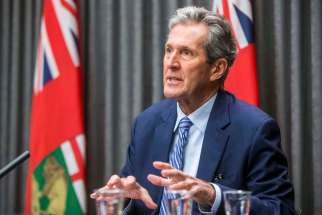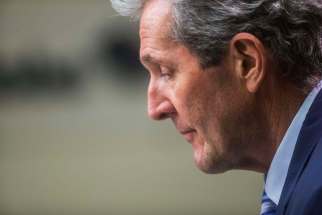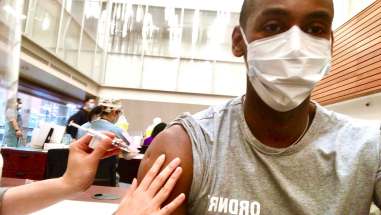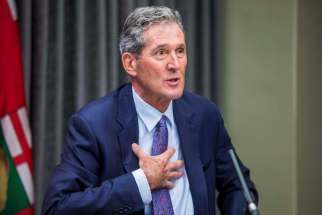Dr. Ali all-in on COVID-19 battle Former Bison treating patients in T.O., aches to hoop again
Read this article for free:
or
Already have an account? Log in here »
To continue reading, please subscribe:
Monthly Digital Subscription
$0 for the first 4 weeks*
- Enjoy unlimited reading on winnipegfreepress.com
- Read the E-Edition, our digital replica newspaper
- Access News Break, our award-winning app
- Play interactive puzzles
*No charge for 4 weeks then price increases to the regular rate of $19.00 plus GST every four weeks. Offer available to new and qualified returning subscribers only. Cancel any time.
Monthly Digital Subscription
$4.75/week*
- Enjoy unlimited reading on winnipegfreepress.com
- Read the E-Edition, our digital replica newspaper
- Access News Break, our award-winning app
- Play interactive puzzles
*Billed as $19 plus GST every four weeks. Cancel any time.
To continue reading, please subscribe:
Add Free Press access to your Brandon Sun subscription for only an additional
$1 for the first 4 weeks*
*Your next subscription payment will increase by $1.00 and you will be charged $16.99 plus GST for four weeks. After four weeks, your payment will increase to $23.99 plus GST every four weeks.
Read unlimited articles for free today:
or
Already have an account? Log in here »
Hey there, time traveller!
This article was published 06/01/2021 (1802 days ago), so information in it may no longer be current.
Dr. Amir Ali arrives at work every day to see the faces of COVID-19.
He takes care to mask up and dons his personal protective equipment.
The routine is essential since mistakes in this business can have grave consequences. As a first-year resident in emergency medicine at the University of Toronto, the 27-year-old Winnipegger seems like he’s built for the job.
Since moving to the Ontario capital on July 1, he has been tested twice for the virus with two negative results. And he plans to keep it that way.
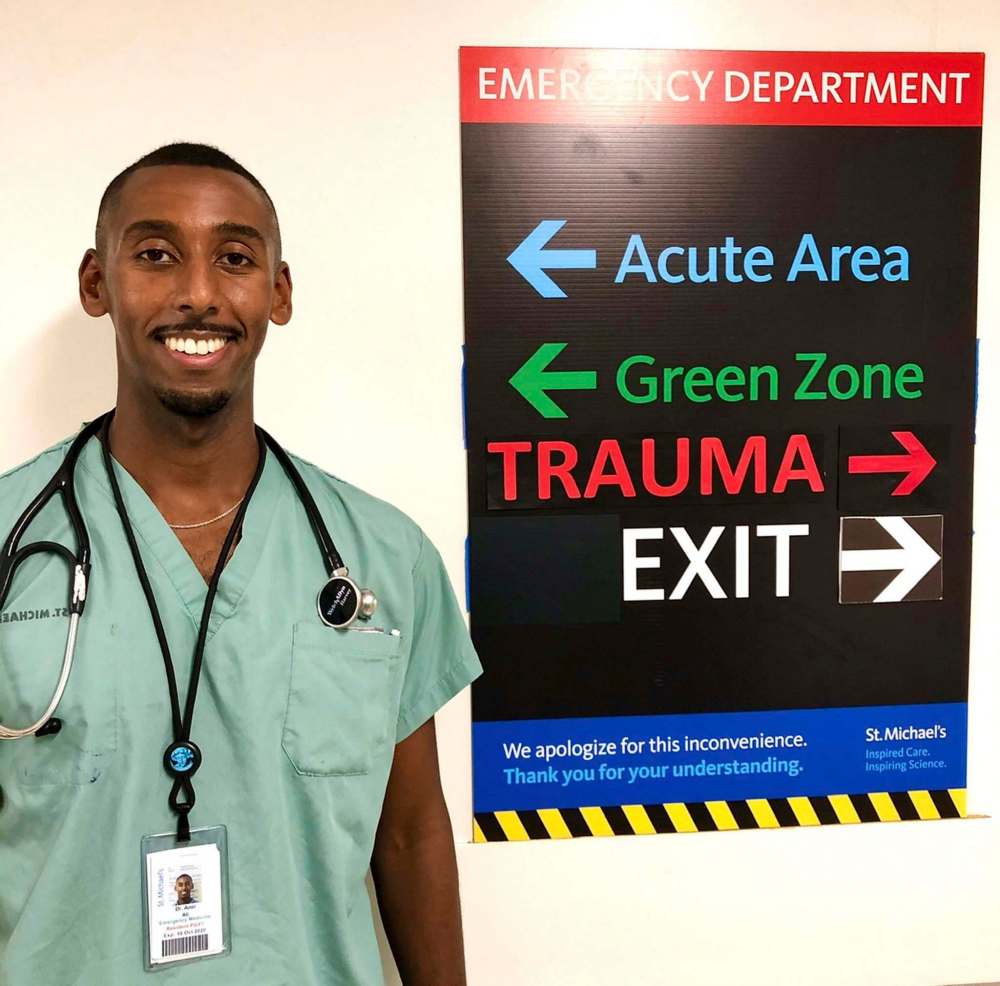
“I saw a COVID patient last night and I basically took the entire history for that patient standing in the doorway,” said Ali by telephone Tuesday. “You trust your PPE and you get gowned up and you do all the things that you need to do to protect yourself, but you don’t want to add — it still lingers in the back of your head — you don’t want to add any more risk than you need to, right? So I generally will ask all my questions from quite far away.”
Ali is hardly a veteran of this but the past six months have aged and informed him.
A former member of the University of Manitoba Bisons men’s basketball team, he graduated from the U of M medical school in June and promptly landed in one of the most stressful workplaces he could have imagined.
A recent stint at Sunnybrook Health Sciences Centre was a prime example. Patient waiting rooms were jam-packed, with anxiety levels through the roof.
“This past week in the emerg, it’s just been like madness,” said Ali. “I think I showed up for the work on the New Year’s Eve and it was like a 14-hour wait to be seen by a doctor… That’s probably the biggest change as of late is that the volume is exceedingly high and the baseline stress level of the patients that come in — they’re sicker.
“I saw a COVID patient last night and I basically took the entire history for that patient standing in the doorway… You don’t want to add any more risk than you need to, right? So I generally will ask all my questions from quite far away.” – Dr. Amir Ali
“So they’re more fed up and you’re more worried because it just kind of COVID looming around. It’s been a bit different but, honestly, it’s been a good experience the last six months. I’m happy to be here and I’m enjoying it.”
The reality of the pandemic has forced a change in how he would expect to interact with patients.
“Time permitting, you would spend a lot more time with the patient and sit right next to them, kind of hold their hand, go through things, have a really thorough exam but in the pandemic you kind of want to minimize how much time you have up-close contact with them, right?” said Ali.
“So you try to have a focused approach to what you’re doing and then you get in the room and get out as fast as you can.”
The day-to-day strains don’t go away but Ali learned to accept the risks.
“The overarching stress of it all does set in to some degree,” said Ali. “I remember my first two weeks and I didn’t even know how to react in terms of what was safe and what wasn’t… You get more confidence by seeing that, ‘OK if I do take the proper measures, the chances are low that I will get sick.'”
Tuesday was a milestone day for Ali when he was an early recipient of the Pfizer-BioNTech vaccine after being chosen through a lottery system. He’ll get the second dose in a few weeks.

While getting the vaccine will be a relief, personally, Ali has also made a point of bolstering his knowledge to help others.
“I had a vested interest in really understanding what was going on here because the medical field is having a difficult time combating a lot of misinformation that’s floating around,” he said. “You hear a lot of incorrect stuff about risks with the vaccine and so I kind of did a very deep dive into the literature and just so I was prepared to kind of communicate with people close to me and patients, just to build their comfort in the vaccine.
“Between the two that are available right now in Canada — the Pfizer and the Moderna — I’m very comfortable getting both, and I would have taken whichever one was first available.”
Ali said he frequently hears outlandish, nonsensical claims about the vaccines. Which were the craziest?
“I don’t even want to comment on that because I think that’s probably one of the biggest problems,” he said. “Even though you make fun of them and you can dispel them quite easily, the fact that you give these ideas life, I think, actually does more harm than good.”
“Between the two that are available right now in Canada– the Pfizer and the Moderna — I’m very comfortable getting both, and I would have taken whichever one was first available.” – Dr. Amir Ali
“A lot of people have innate distrust of government or the system and so they’ll latch on to anything you give them, so if somebody does approach me and they bring up one of those things I’m pretty quick to dispel them. I just give them hard facts of why those things aren’t true.”
The pandemic also has invaded his life away from work.
Ali played five years for head coach Kirby Schepp’s Bisons before medical school and he aches to play again, if only to unwind. Working out with equipment in his apartment and the occassional run outdoors don’t completely fill the void.
“Where do I find time to relax and and find peace?” he said. “I still play basketball, very regularly when I’m allowed to, but it’s been weird. It’s been around eight months since I picked up a ball at this point but — if I had my own gym I would go hoop right now — that would be my saviour.”
mike.sawatzky@freepress.mb.ca
Twitter: @sawa14

Mike Sawatzky
Reporter
Mike has been working on the Free Press sports desk since 2003.
Our newsroom depends on a growing audience of readers to power our journalism. If you are not a paid reader, please consider becoming a subscriber.
Our newsroom depends on its audience of readers to power our journalism. Thank you for your support.


